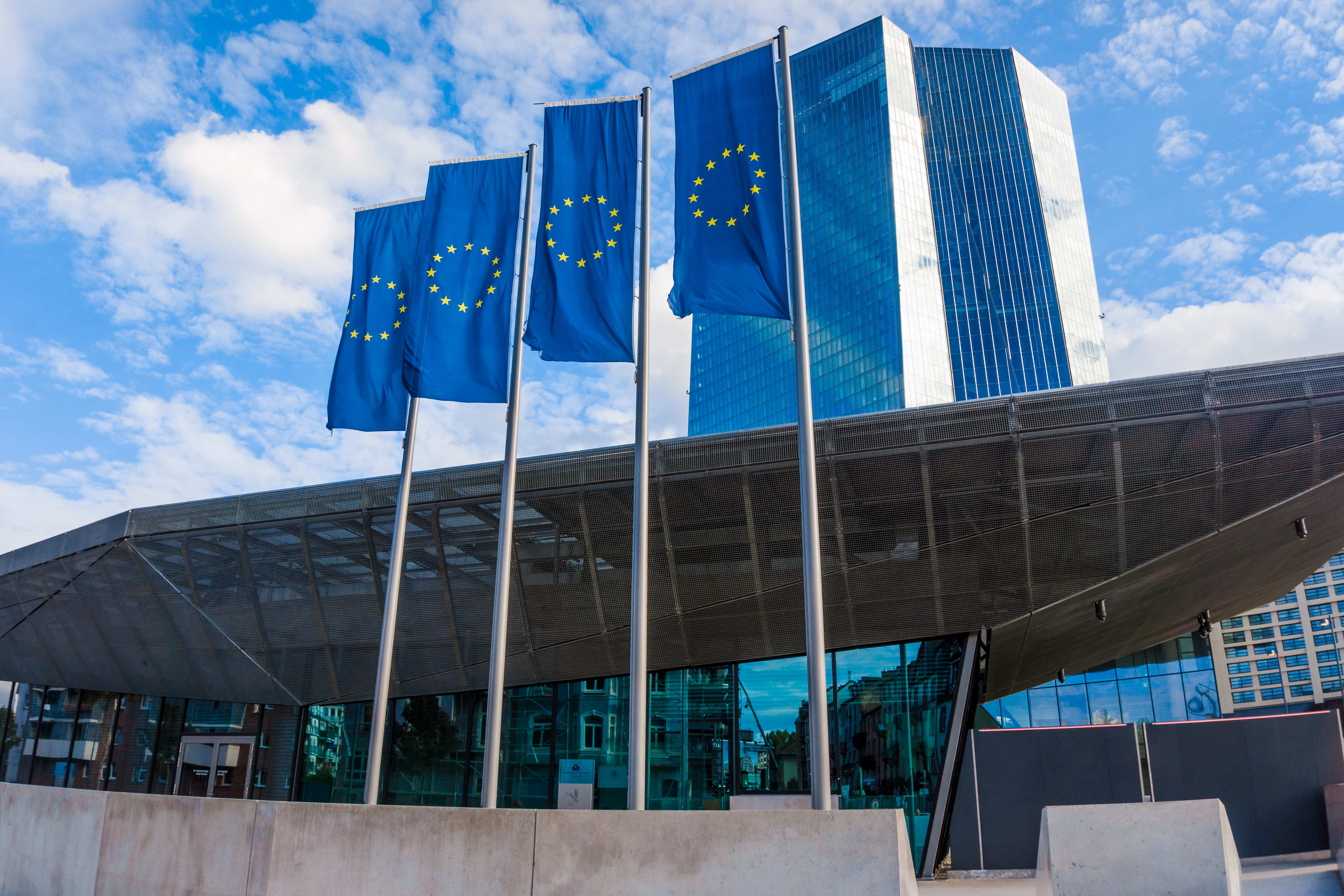This blog is adapted from a paper published originally by Global Perspectives and cross-published by CGD.
The global policy debate on multilateralism has taken an intriguing turn during recent months and its focus has been widened. Besides its previously dominant topic of renewed great-power rivalry and the deleterious effects of that on multilateralism, the essential, even indispensable role of multilateralism for meeting today’s global challenges has now emerged as a second priority topic that, moreover, attracts high-level political attention. Consider the resolution 75/1 adopted at the high-level segment of the United Nations (UN) General Assembly just a few weeks ago, where UN member states’ leaders emphasize that “our challenges are interconnected and can only be addressed through reinvigorated multilateralism.” Therefore, as they underscore, “strengthening international cooperation is in the interest of both nations and peoples.”
These statements raise the question of how, under the current global geopolitical realities, a reinvigoration of multilateralism could realistically be achieved.
Looking for an answer to this question in the rapidly proliferating literature on the public policy and governance dimensions of the COVID-19 pandemic leads to an interesting and, I feel, worrisome finding. What is to be reinvigorated is generally the state and non-state actors’ willingness to cooperate and not the system of multilateralism itself. Solidarity born out of fear about one’s own health and well-being, however understandable, is unlikely to provide a solid basis for what is urgently needed: a modernized system of multilateralism. This would be a system fit for tackling today’s global policy purposes, ranging from climate change and financial stability to cybersecurity, safe use of new technologies such as artificial intelligence, breaking the nexus between terrorism and national conflicts, and, of course, promoting the control of communicable diseases such as COVID-19.
However, let us first examine more closely the ideas advanced in the various contributions to the COVID-19 debate, and, second, turn to the issue of what it might take to reinvigorate the system of multilateralism itself.
The current debate on how to reinvigorate multilateralism: appealing to actors’ solidarity
The present emphasis on the strengthening of multilateralism has mainly been propelled by COVID-19. Given that the virus might affect anyone anywhere and that vaccines and other medical products providing protection against it are still to be developed, it is being argued that mutual protection by such means as wearing a face mask, observing social distancing, and handwashing is, for now, the only way of reducing risk to oneself and others. This mutual interdependence calls for solidarity within and across countries, whether motivated by pure self-interest and/or compassion for others. The present calls for solidarity and strengthened international cooperation are thus actor-focused and highly COVID-19-specific. In addition, they are presented as a temporary requirement owing to the present acute crisis situation and its devastating economic and social knock-on effects.
A sobering picture emerges upon examining how the advocated solidarity has so far translated into practiced solidarity. For example, several directly COVID-19-related international cooperation initiatives are under-funded (see among others Homi Kharas and Meagan Dooley.) Moreover, some analysts point to “vaccine nationalism”; others point to sharp discrepancies between richer countries’ massive national response packages and the relatively modest international response packages available to help developing countries to cope with the pandemic crisis.
We should use COVID-19 to implement long-postponed policy reforms that impede progress toward more sustainable growth and development, both nationally and globally.
To a large extent, the notion of reinvigorated multilateralism simply boils down to doing more of the same, along the established business-as-usual paths of international cooperation. There is little, if any discussion on whether today’s already relatively weak solidarity will persist once a vaccine is available and provides those able to afford and access it with a private way out of the crisis. Will the present level of solidarity suffice to end the COVID-19 pandemic? And, will it lead to a fuller and lasting awareness of today’s changed global policymaking realities?
I have serious doubts about that; and, therefore, I agree with the few analysts who argue that COVID-19 is too costly and too important a crisis to let go to waste. We should use COVID-19 to implement long-postponed policy reforms that impede progress toward more sustainable growth and development, both nationally and globally.
Therefore, a review of the most critical long-postponed reforms in the field of international cooperation that we ought to advance now is necessary.
A more realistic and promising approach: replacing the operating principle of the multilateral system
Of course, actors’ willingness to cooperate is of critical importance to a well-functioning multilateral system. However, it should not depend on their whims, but rather, the system should be designed to incentivize actors to do more than they otherwise would, where an effective and efficient resolution of global challenges might otherwise not be possible.
Global incentives are of critical importance on the operational side (as opposed to the policy-setting side) of international cooperation. Today’s world differs significantly from 75 years ago, when the current international system architecture was built. The key differences are: greater economic openness; the increasing importance of global public goods (GPGs)–things and conditions in the global public domain that affect us all and often require all of us to ensure their availability; and the rising trend towards multipolarity. These differences are coupled with a growing demand for fair and mutually beneficial international cooperation, based on a continuously strong commitment to the principle of sovereignty, which forms the core of the present world order and, consequently, the conventional system of international cooperation.
Taken together, these conditions have generated a global dilemma. On the one hand, they have led to deep policy interdependence among countries’ inter-nation relationships marked by de-facto universal multilateralism. Hence, what needs reinvigoration today is not “mini-lateralism” or any type of so-called club-governance. Rather, it is universal multilateralism.
On the other hand, it is precisely this universal multilateralism that the conventional major powers loathe. Previously, they could foster a close alignment between their national and related global policy goals and approaches by relying on top-down power politics as the main operating principle of multilateral cooperation. However, power is now more broadly distributed and, consequently losing its effectiveness as the main driving force or operational principle of international cooperation. Yet, no substitute principle has as yet emerged. I would argue that this fact explains the present limping along of international cooperation and the rivalry where fair and mutually beneficial cooperation would clearly be the more effective and cheaper way for countries to meet the double-bottom line of securing their national policymaking sovereignty and enjoying enhanced global sustainability.
The most pressing long-postponed reform that we should now seek is to forge consensus on a new operating principle for the system of multilateralism more generally and universal multilateralism in particular.
Accordingly, the most pressing long-postponed reform that we should now seek is to forge consensus on a new operating principle for the system of multilateralism more generally and universal multilateralism in particular. One option to consider might be the “dual compatibility principle.” This principle would call for a commitment of states to: (i) engage in more sovereignty-compatible multilateral cooperation or, put differently, cooperation that all the concerned parties and stakeholders view as being on the whole fair and supportive of their development ambitions; and (ii) conduct an exercise of national policy-making sovereignty that is compatible with multilateral cooperation and, hence, respectful of other nations’ sovereignty. This approach also takes into account the provision requirements of global challenges, which often may demand contributions from state and non-state actors that exceed what these actors would do if guided only by their–rational and/or altruistic–self-interests.
A long research agenda is waiting to be addressed
As the discussion in this blog suggests, the astonishingly inadequate international cooperation response to the COVID-19 crisis so far seems to reflect problems of path dependency and change aversion on the part of policymakers and their various constituencies. However, should one really wonder about policymakers’ hesitant behavior and their lack of a vision of change? Not really.
In my view, policymakers’ hesitance reflects the present lack of innovative research on how to reinvigorate the system of universal multilateralism. Just consider the present lumping together of such diverse policy strands as development assistance to developing countries, GPG provision, and crisis response and stabilization support. Certainly, there exist linkages and synergies between these strands. However, in order for these synergies to emerge, each policy strand must, first of all, be addressed in its own right and with due respect to its specific governance requirements, including its own economics and effects on policymakers’ and the global general public’s interests and policy choices. Moreover, the aid bias and strong “poor-country” focus that currently marks much of international cooperation seems to contribute to a neglect of GPG issues, with high distributional consequences such as cybersecurity or the safe use of artificial intelligence (AI), and is linked to the persistence of major power rivalries.
Why, then, wait any longer? A rich agenda for innovative research and global policy conversations is urgently waiting to be addressed. Now is the time to use the present COVID-19 “pro-multilateralism momentum” to catch up with long-postponed studies and foster more informed decision-making about when, why, and how multilateralism could make it possible for all of us to have it all – more effective international cooperation, faster progress towards sustainable global growth and development, and more secure sovereignty.
For a more in-depth discussion on the issues raised in this blog, please visit the author’s paper on “Multilateralism 2.0: It is Here – Are we ready for it?”
Disclaimer
CGD blog posts reflect the views of the authors, drawing on prior research and experience in their areas of expertise. CGD is a nonpartisan, independent organization and does not take institutional positions.





